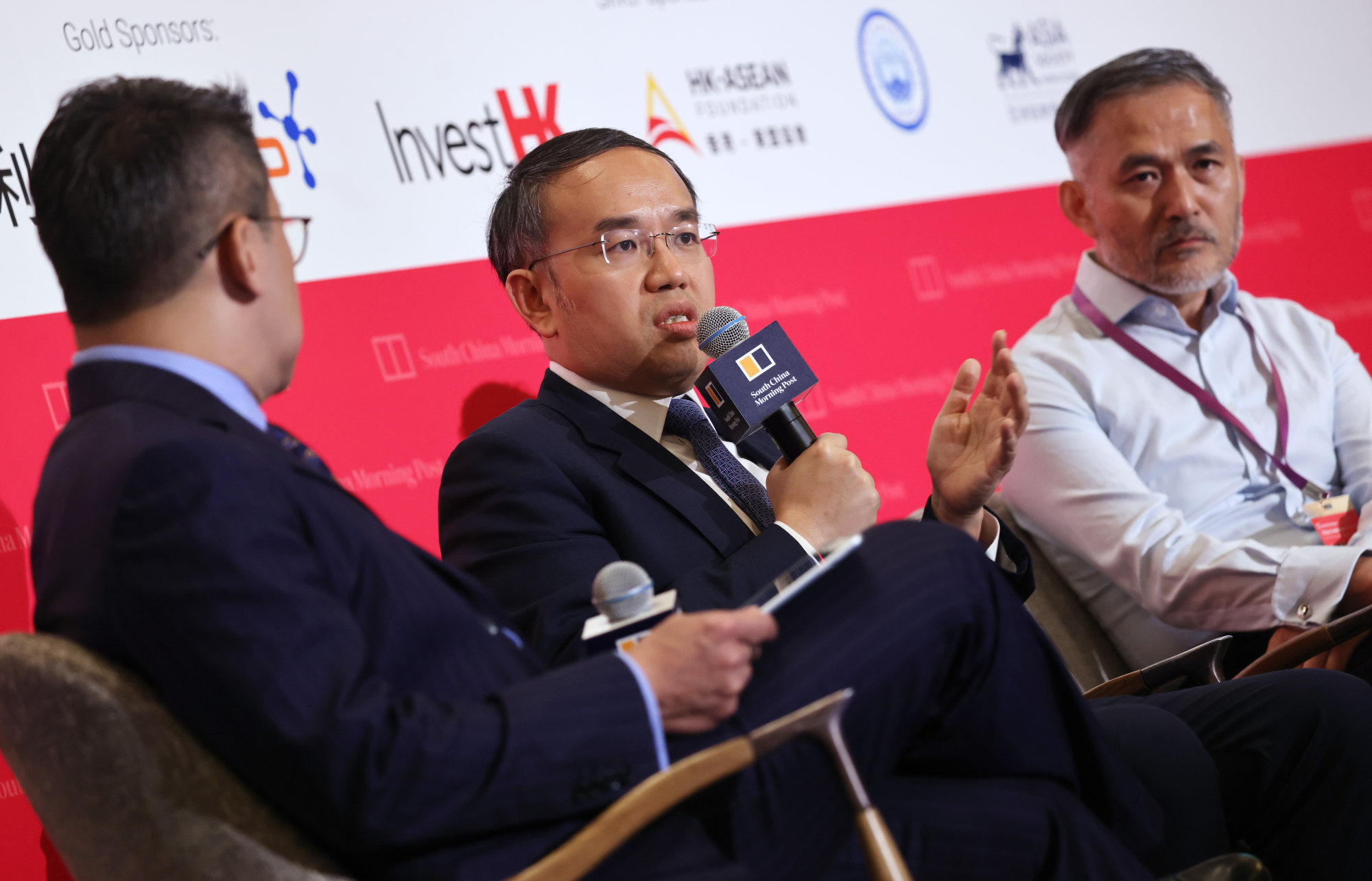
Hong Kong vows to regulate stablecoins, explore rules for virtual asset derivatives to protect investors
- The city aims to introduce a licensing regime for stablecoins by 2024, officials say at the China Conference: Hong Kong forum
- Hong Kong will continue to create a holistic and predictable regulatory environment, city financial chief Christopher Hui says
Hong Kong officials said they are committed to introducing regulations for stablecoins by 2024 while reviewing rules on crypto derivatives, as the city strives to bolster its virtual asset licensing regime and become a global Web3 hub.

Hui said regulators are working on the regime, which is expected to be implemented next year. “What we have done and will continue to do, is put together a sustainable regulatory framework in such a way that we can grow this market, yet at the same time ensure the relevant risks are being managed,” he said.
Elizabeth Wong, director of licensing for the Securities and Futures Commission (SFC), which enforces Hong Kong’s new virtual asset trading regime, said at the same event that the agency is also formulating its own stablecoin policy and will collaborate with HKMA.
“We are working together with them to ensure that there’s not much overlap between our regimes and that if there are overlaps, figure out how we’re going to deal with it,” she said.
The SFC is also conducting a review on whether to allow the trading of virtual asset derivatives on licensed virtual asset trading platforms, according to Wong.
“For our purposes, what we need to get our heads around are the conflicts of interest”, because virtual asset platforms can play both the roles of derivative issuer and market player, she said.

Hong Kong has pushed ahead with its ambitions to become an international virtual asset hub despite the industry suffering from a “crypto winter” following a series of meltdowns, from the collapse of the Terra Luna stablecoin in May 2022 to the bankruptcy of FTX, formerly the world’s largest crypto exchange, in November.
While Hong Kong’s move appears to diverge from policies in mainland China, where cryptocurrency trading is banned, Wong said the city’s approach has always been to “regulate for investor protection” rather than “using enforcement as a tool to drive good behaviour”.
“I think the crypto winter has really vindicated this approach … because the issues we’ve seen arising from the crypto winter largely arose due to the lack of regulation,” she said.

